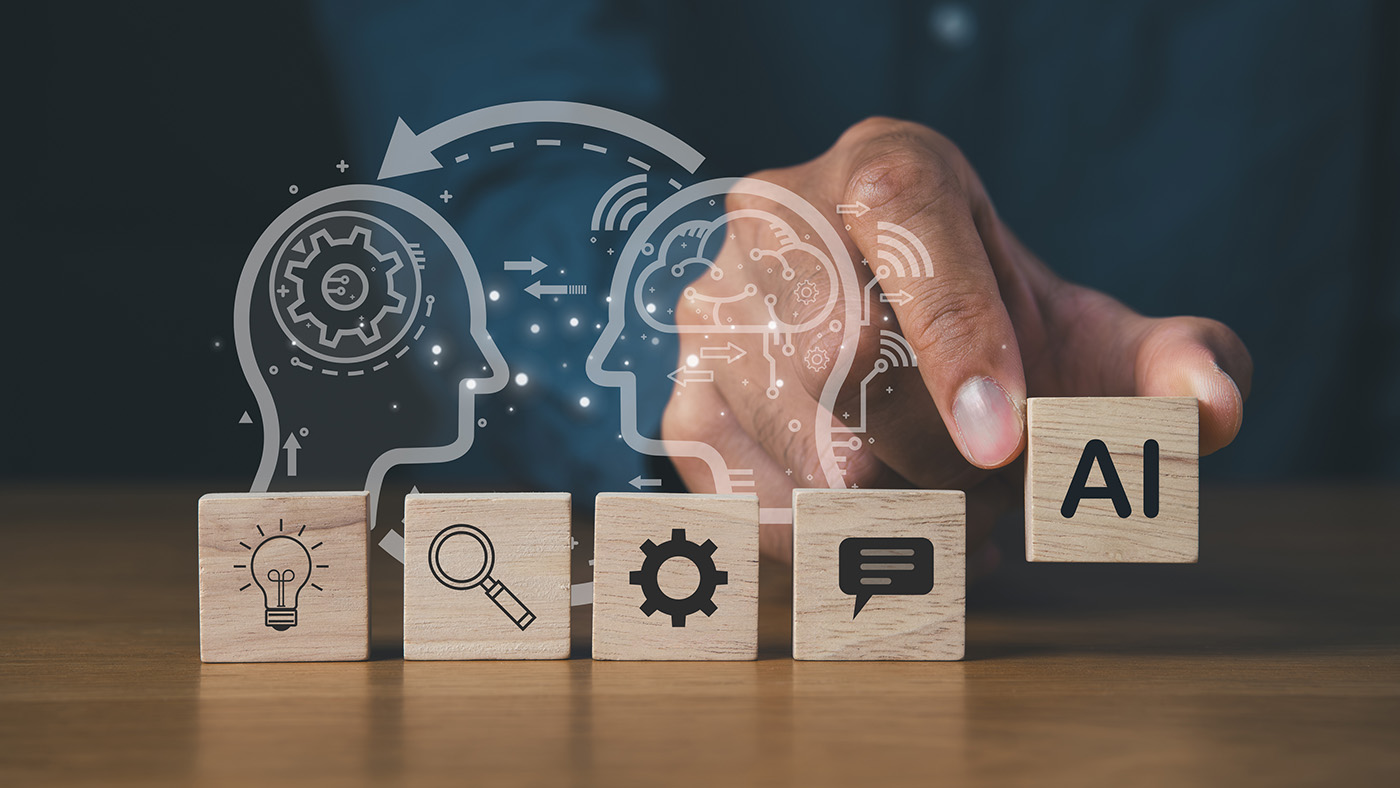Shaping Digital Ecosystems
Andreas Weiss, Managing Director of the eco Association, explores the progress in designing digital ecosystems, the role of sovereign digital identities, and the opportunities and challenges for the EU in asserting digital sovereignty.

The concept of digital ecosystems heavily revolves around data, a cornerstone of this initiative since its inception in 2019 with the launch of Gaia-X. This project, often referred to as the “Airbus of AI,” aimed to serve as a European model of success for utilizing AI applications. The goal was twofold: to drive innovation within the digital industry in Europe and to address the challenge of managing data sovereignty. Data, especially in B2B contexts, is frequently considered intellectual property, making it essential to establish infrastructures and services that operationalize data sovereignty.
Progress in designing digital ecosystems and promoting sovereign digital identities
One key pillar in achieving this has been sovereign digital identities. These identities are crucial for ecosystems as they enable parties to identify each other without disclosing unnecessary information. This aligns perfectly with the concept of sovereign digital identities, which allow for secure and controlled data sharing based on the specific use case.
Looking ahead, the focus is on refining the mindset of companies to leverage data more effectively and integrate it into their business models. This is not just about creating hardware products like cars but about embedding software and digital services as integral parts of these ecosystems. However, discussions around digital sovereignty have often overshadowed these efforts, sometimes reducing the topic to whether Europe needs its own cloud providers to achieve sovereignty. At eco, the emphasis has been on resilience as a critical aspect of sovereignty – ensuring that digital services are managed globally in a robust and reliable manner.
eco’s third-party funding projects
The Gaia-X Federation Services (GXFS) project is nearing completion, delivering significant technical components for driving digital ecosystems. These open-source solutions, disseminated through partnerships with organizations like the Eclipse Foundation, have gained substantial adoption among a wide array of projects and companies. This success stems from a collaborative effort to identify priorities and manage evolving needs, a process supported by the German Ministry of Economy, Energy, and Climate Action.
Building on this momentum, a new initiative – Federated Architecture for Composition of Infrastructure Services (FACIS) – has been launched. FACIS focuses on cloud and edge environments, taking the momentum gained from federation services into environments like cloud and edge computing, which are closer to our membership and integral to the cornerstones of digital infrastructures. Other projects the eco Association is involved in include FAME, which addresses embedded finance in the financial industry, and TANGO, which emphasizes trusted data sharing within ecosystems.
The concept of digital ecosystems has gained global traction in the last few years. Countries like China, South Korea, and Japan are developing their own data spaces, reinforcing the universal relevance of this approach.
Opportunities and challenges for the EU in asserting digital sovereignty
Digital sovereignty must be viewed pragmatically, focusing on retaining the value of digital services within Europe and being an integral part of the digital value chain. This involves shaping Europe’s digital future by developing unique concepts and services, investing in digital infrastructures such as data centers, interconnection services, and cloud and edge computing. These pillars enable digital sovereignty.
As Alexander Rabe, my fellow Managing Director of the eco Association, wrote earlier this year, “(…) the ecosystem of digital infrastructures is the backbone of digital transformation and all the business models and value chains based on it”. Dr. Béla Waldhauser, Spokesperson for the Alliance for the Strengthening of Digital Infrastructures in Germany, echoes the sentiment. He sees the future of Europe's competitiveness depending on seizing the opportunity to harness the full potential of its digital ecosystem by building high-speed, reliable digital foundations that will power industry, government, and society for decades to come.
Europe’s competitive edge depends on recognizing digital services as critical success factors. For example, the automotive industry, which constitutes about 20% of Europe’s GDP, faces significant pressure as differentiation shifts from the product itself to the surrounding ecosystem and user experience. Embracing this shift will be key to aligning hardware products with digital service ecosystems, forming cohesive digital ecosystems.
One of the key drivers of this transformation is artificial intelligence (AI). While AI models like ChatGPT have sparked debates about their usage, they are here to stay. The challenge now is to build better foundation models for specific use cases within the European industry. Initiatives like the Large European AI Models (LEAM) in collaboration with the German AI Association are already underway.
The EU has recognized the need for Important Projects of Common European Interest (IPCEIs) to support strategic initiatives. For instance, there is already an IPCEI for Next Generation Cloud Infrastructure and Services (IPCEI-CIS), with €7–8 billion in investments across 12 Member States. However, we need to think bigger. Discussions are ongoing to introduce new IPCEIs, such as those focusing on AI foundation models and cloud-edge infrastructures. These would cover not only software but also hardware and facility investments. While the process isn't finalized, the EU Commission is working to expedite decisions based on lessons learned from previous projects in areas like hydrogen and microchips.
Emerging trends in digital business models
Aside from some commodity applications and larger systems like GPT and others, we haven’t seen AI scale significantly yet. There’s still a learning curve when it comes to implementing AI services into core corporate environments. For instance, in our project work, such as the AI in Practice, we are exploring economic perspectives and practical applications of AI. However, the discussions are still ongoing. On a global scale, AI investments are enormous – with around $200 billion in corporate investments in 2023 in AI technologies. Unfortunately, over 90% of this investment is outside Europe. This highlights the need for Europe to improve in this area, as it ties directly to digital business models.
We need to enhance the added value generated by digital services to support investments in infrastructure and services. This is a critical challenge for the next five years – to align these investments with the needs of enterprises, especially SMEs, enabling them to adopt AI services, enhance competitiveness, and ultimately afford such technologies. While AI services might seem expensive initially, the potential gains far outweigh the costs.
At eco, we contribute by providing clarification, facilitating discussions, and bringing stakeholders together to address key issues. These include the EU AI Act, energy consumption of data centers, and sustainability. For example, AI-focused data centers consume significantly more energy. It’s essential to manage this by exploring options like reusing waste energy for heating or process energy. This is a key objective of our Data Center Expert Group, which works on aligning such strategies with municipal energy and heating plans. While we can support these initiatives, final investment decisions lie elsewhere.
Decentralized infrastructure like edge computing has become increasingly important as data generation shifts from centralized data centers to diverse locations like smart cities and factories. These models rely on robust interconnection and low-latency solutions, areas where eco plays a significant role.
Cloud and edge computing: innovations and potential
In the past, the cloud landscape was simpler, dominated by a few providers offering well-orchestrated, closed ecosystems. However, transitioning to a multi-cloud strategy has proven challenging for many.
The importance of edge computing comes into play here. When discussing digital ecosystems and new business models, everything ultimately relates to data. Data isn’t solely generated in hyperscaler data centers – it’s created across various environments like smart cities, highways, and factories. To leverage this data for business models, we need edge infrastructure for data aggregation, preparation, and sharing.
Edge computing also supports scenarios requiring low latency or real-time processing, such as autonomous driving. Physical constraints, like the speed of light, demand that processing entities be within 90 kilometers of the data source to maintain latency below five milliseconds. This highlights the role of edge computing in addressing such challenges.
Integrating edge and cloud environments seamlessly is crucial. Workloads must be interoperable, whether they reside in edge environments or hyperscale clouds. Abstraction technologies like Kubernetes are essential for ensuring workloads can move across different infrastructure stacks. For example, in smart factories, terabytes of data are generated on the shop floor. Instead of transferring all this data to hyperscale data centers, edge computing allows optimized and reduced data processing locally before central AI training or post-processing.
The complexity is comparable to managing energy grids, which involve integrating various distributed energy sources while maintaining a stable 50 Hz frequency. Similarly, orchestrating cloud and edge infrastructures requires advanced coordination and abstraction to support diverse use cases.
eco – supporting members and shaping the Internet industry
eco’s membership is incredibly diverse, encompassing a wide range of companies and stakeholders with innovative ideas and activities. The Internet is the backbone of our digital society. Without digital infrastructure and services, we wouldn’t have social communication, video conferencing, or streaming.
The importance of this ecosystem became especially clear during the COVID-19 pandemic, as society realized how dependent we are on digital services. At eco, we address a variety of topics, from Internet security to data center ecosystems. For example, at this year’s Digital IT event in Frankfurt, our presence highlighted the critical role of these infrastructures.
While political announcements often fall short of fulfillment, eco’s initiatives have delivered concrete results. For instance, DE-CIX started with just three networks in 1995 and now manages nearly 4,000 networks worldwide, an extraordinary achievement. We also represent 75% of the domain industry, leading initiatives like topDNS for improved security.
Another success has been our work on data center developments, including a report on transforming former industrial sites into digital infrastructure hubs. Investments once considered unlikely have materialized, showcasing the long-term vision and relevance of eco’s efforts.
eco continues to provide guidance, stay ahead of market trends, and advocate for effective regulations, such as the Digital Services Act and the EU’s AI Act. This diverse range of activities ensures that eco remains a valuable partner to its members.
In preparation for its 30th anniversary in 2025, eco is looking forward to celebrating a year-long milestone, emphasizing its relevance not only to traditional Internet industries but also to classic corporate sectors such as the automotive industry entering the digital age. Collaborative efforts in areas like supply chain management, carbon footprint monitoring, and digital product passports demonstrate eco’s expanding impact across sectors. These exchanges allow our members to work closely with new industries, creating exciting opportunities for innovative business models and concepts.
Andreas Weiss is Managing Director of eco – Association of the Internet Industry. He has been with the association since 1998 and headed the E-Commerce and Logistics Competence Group and later the E-Business Group. Since 2010, he has been Director of EuroCloud Deutschland_eco e.V. and since 2019 a member of the board of Trusted Cloud, where he has been responsible for the association's cloud activities. Weiss is also involved in projects related to artificial intelligence, data protection and the GDPR, as well as the security and compliance of digital services in eco's Digital Business Models division.
Andreas Weiss is involved in a number of initiatives related to designing digital ecosystems, applying sovereign digital identities, and building AI operating structures with cloud and edge concepts, all with a focus on supporting the EU's ability to shape digital innovations and processes.
He started his freelance software development career in 1984 while still studying natural sciences. He coordinated international projects in service management for Hewlett-Packard and worldwide installation services for Sun Microsystems servers.






